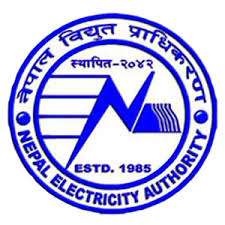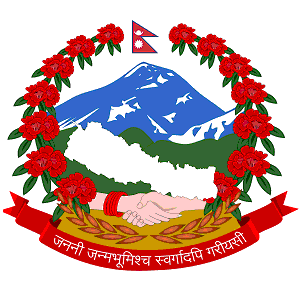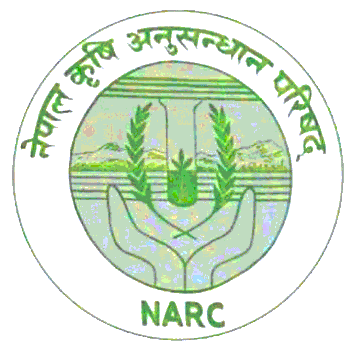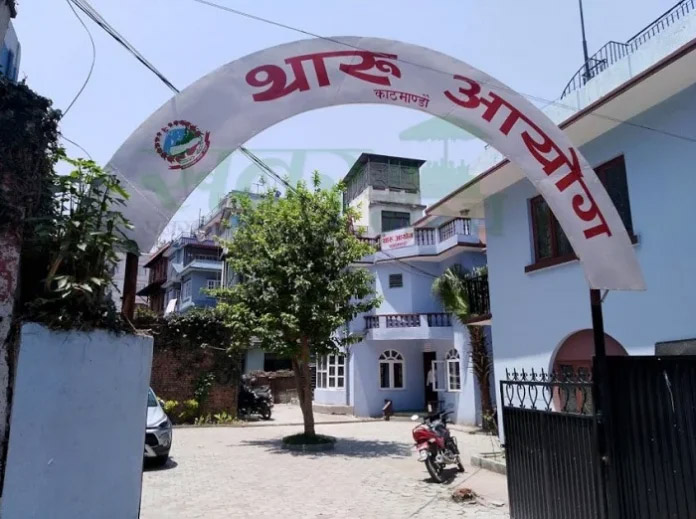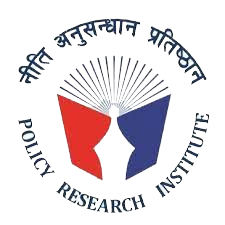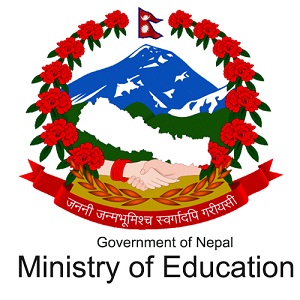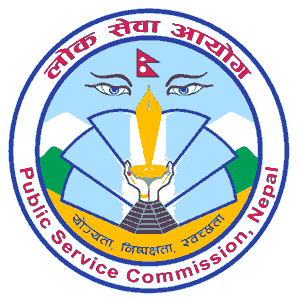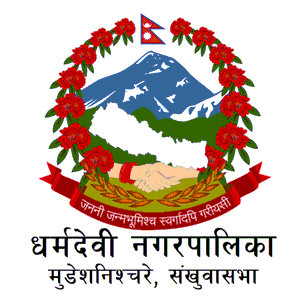Overview
The Press Council Nepal (प्रेस काउन्सिल नेपाल) has a storied past and a significant role in molding the face of Nepalese journalism. Established with the aim to foster responsible and dignified journalism, the Council is a key institution in ensuring the media adheres to the highest professional standards.
Historical Overview:
- 1957 AD (2014 BS): The inception began with the formation of the Press Commission.
- 1967 AD (2024 BS): The establishment of the Press Advisory Committee.
- 1970 AD (2027 BS): The Committee was renamed as the Press Advisory Council. On September 22, 1970 AD (2027/06/06 BS), the Press Council Nepal was officially formed in line with section 30 (a) of the Printing and Publication Act, 2019 BS.
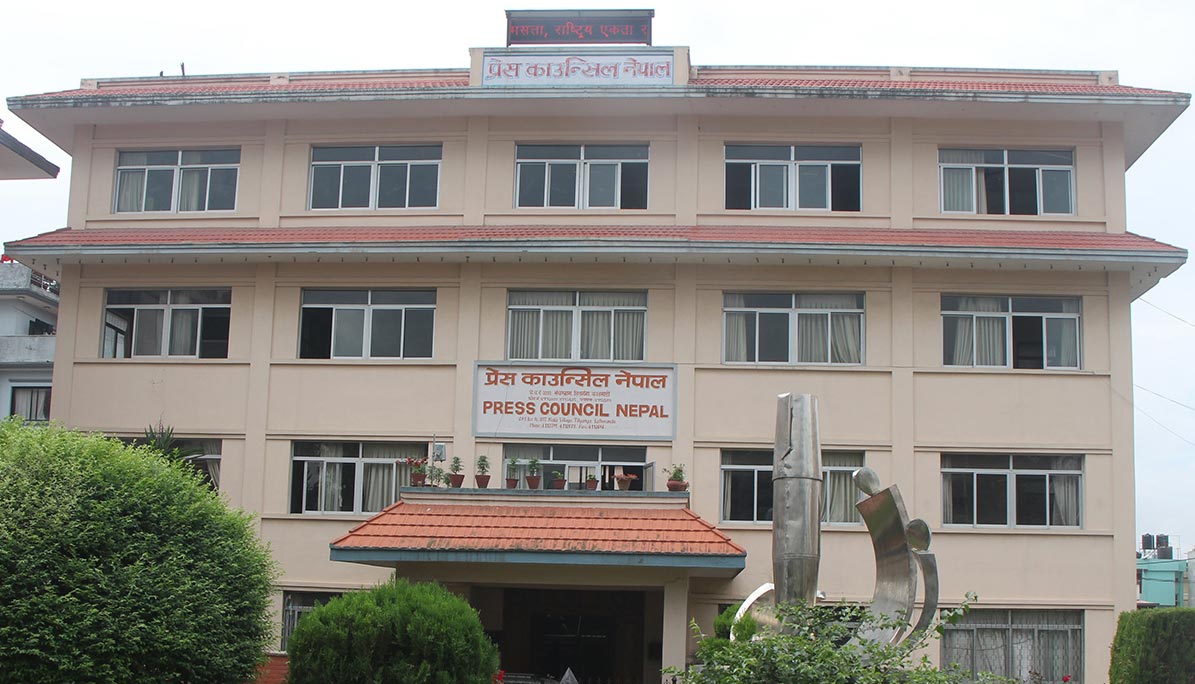
Organizational Structure:
Under the Press Council Act, 2048 BS:
- The Council comprises 1 chairman and 9 members appointed by the Government of Nepal.
- Members serve for a maximum tenure of 4 years.
- The Chairman of the Nepal Journalist Association serves as an ex-officio member.
- The Director General of the Information Department functions as a member-secretary.
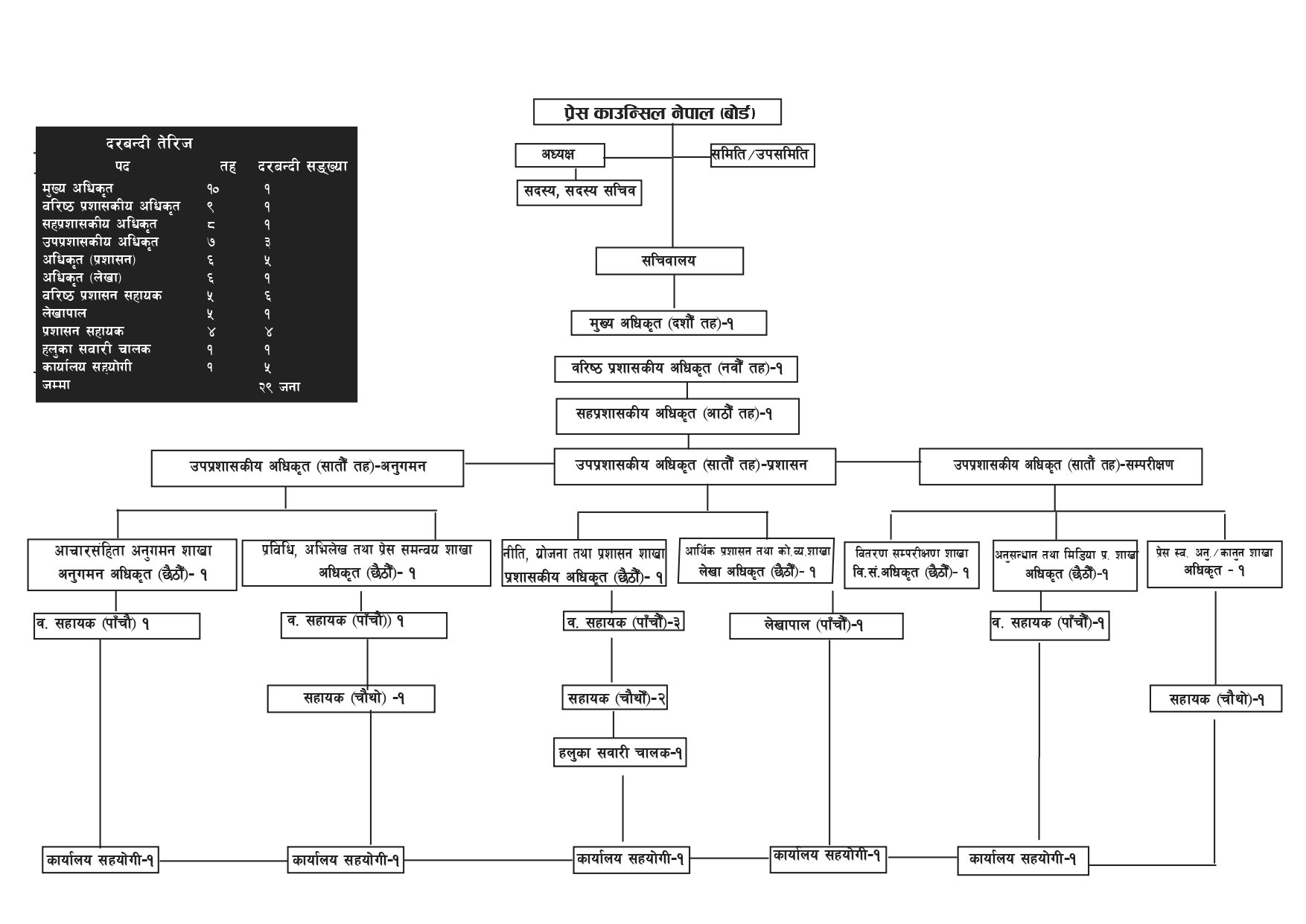
Purpose and Role:
The Press Council Nepal is an embodiment of the ideal of responsible journalism in the nation:
- Primary Role: Monitoring and evaluation of the media to ensure it operates with dignity and responsibility.
- Journalistic Code of Conduct: The Council is the custodian of the journalistic code of ethics. It ensures adherence to this code and takes actions against violations.
- Bridge Builder: It acts as an intermediary between the Nepal government and the media sector.
Key Activities:
- Complaint Redressal: Addressing complaints regarding breaches of the journalistic code of ethics.
- Research and Studies: Undertaking investigations and studies on journalism ethics.
- Awareness Campaigns: Promoting knowledge and understanding of the code of ethics.
- Monitoring: Ensuring the mass media abides by the established code of ethics.
- Advisory Role: Offering recommendations to the government on journalism development.
The Press Council Nepal stands as a beacon of hope for ethical journalism in the country. Through its continued efforts, the Council aims to promote the growth of a media landscape that is independent, responsible, and respects the principles of journalistic integrity.
Objectives of the Press Council Nepal
The Press Council Nepal is steadfast in its mission to elevate the standards of journalism in the country. Let's delve into the key objectives that guide its operations:
-
Promotion of Healthy Journalism:
- Aimed at fostering an environment conducive to the growth of constructive and reliable journalism.
-
Establishing Journalistic Code of Conduct:
- Crafting a comprehensive code of conduct for journalists.
- Ensuring that press freedom isn't misused or abused.
-
Fostering Government-Press Relations:
- Strengthening the bond between the media and the Government of Nepal.
- Ensuring mutual respect, understanding, and collaboration.
-
Upholding Public Morals and Citizen Dignity:
- Ensuring the media respects and upholds the dignity of every citizen.
- Promoting content that aligns with societal values and morals.
-
Preserving Press Freedom and Journalistic Dignity:
- Ensuring a hands-off approach where the press can operate freely without undue interference.
- Safeguarding the integrity and dignity of the journalism profession.
Roles, Duties, and Powers of the Press Council Nepal
The Press Council Nepal stands as a pillar for upholding and advocating for the standards of journalism in the nation. Here's a clear breakdown of its roles, responsibilities, and authority:
-
Policy Observation and Recommendations:
- Task: Monitor the evolving policies related to journalism.
- Action: Engage with relevant sectors for opinions and provide informed suggestions to the Government of Nepal.
-
Formulation and Implementation of Journalistic Ethics:
- Task: Cultivate a culture of healthy journalism.
- Action: Draft and enforce a robust code of ethics pertinent to the field of journalism.
-
Advocacy for the Growth of Journalism:
- Task: Further the development of journalism.
- Action: Propose suggestions and strategies to the Government of Nepal.
-
Record Maintenance of Journalism Distribution:
- Task: Stay informed about the proliferation of journalism.
- Action: Maintain a comprehensive and updated database reflecting the distribution status of journalism.
-
Addressing Public Grievances:
- Task: Address concerns related to published news.
- Action: Take appropriate action based on complaints received regarding news content in newspapers.
-
Annual Reporting:
- Task: Assess and evaluate newspaper operations and activities.
- Action: Compile and submit an annual report to the Government of Nepal, detailing studies and evaluations of newspaper actions and conditions.
-
Investigating Objectionable Content:
- Task: Safeguard the public from harmful content.
- Action: Delve into anti-social and contentious matters presented in newspapers and take corrective measures if required.
Through these well-defined roles and responsibilities, the Press Council Nepal aims to ensure that journalism in the country remains a beacon of truth, responsibility, and public service.



